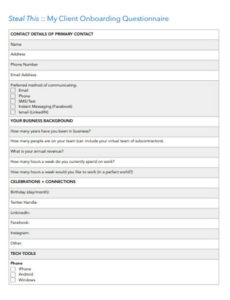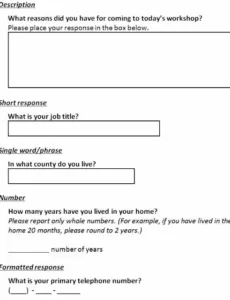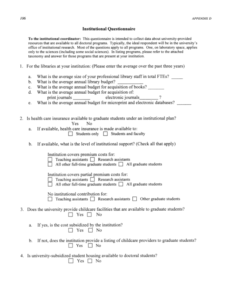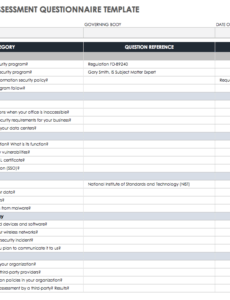There’s a special kind of magic that happens when a group of people gather to discuss a book they’ve all read. The shared experience, the varied perspectives, and the lively debates can truly enrich your understanding of a story and even yourself. Book clubs are fantastic for fostering community, encouraging reading habits, and sparking wonderful conversations that often extend far beyond the pages of a novel. It’s a place where friendships deepen and new ideas flourish, all centered around the simple act of reading.
However, sometimes even the most vibrant book club can benefit from a little structure to ensure every voice is heard and every discussion reaches its full potential. Perhaps you want to make sure you’re covering all the interesting aspects of a book, or maybe you want to gauge your members’ preferences for future reads. This is where a well-crafted book club questionnaire template can become an invaluable tool, transforming good discussions into great ones by prompting deeper thought and ensuring a more inclusive exchange of ideas.
Unlocking Deeper Conversations with a Questionnaire
Imagine arriving at your book club meeting feeling fully prepared to contribute, having already considered some thought-provoking questions about the latest read. That’s the power of introducing a questionnaire. It’s not about stifling spontaneity, but rather about providing a gentle nudge towards more insightful and inclusive discussions. A good questionnaire ensures that quieter members have an opportunity to formulate their thoughts beforehand, and it helps guide the conversation away from superficial topics into the heart of the book’s themes and characters. It can be particularly helpful for new members who might feel a little shy about jumping into an established group, giving them a clear path to participate.
Beyond just the current book, a questionnaire can also serve as a barometer for the club itself. Are members enjoying the chosen genres? Are the meeting times convenient? What kind of activities would they like to incorporate? Gathering this feedback ensures that the club continues to evolve in a way that serves everyone’s interests, making it a more engaging and long-lasting community. It’s about ensuring the book club remains a source of joy and intellectual stimulation for all involved.
Think of it as a helpful guide that you can revisit over time. It can highlight recurring interests, perhaps revealing a shared love for historical fiction or a surprising aversion to memoirs. This collective insight is golden when it comes to planning your reading list for the year ahead, ensuring that future selections resonate with the majority and keep enthusiasm high. A dynamic book club questionnaire template offers a simple yet powerful way to keep the energy flowing and the conversations meaningful.
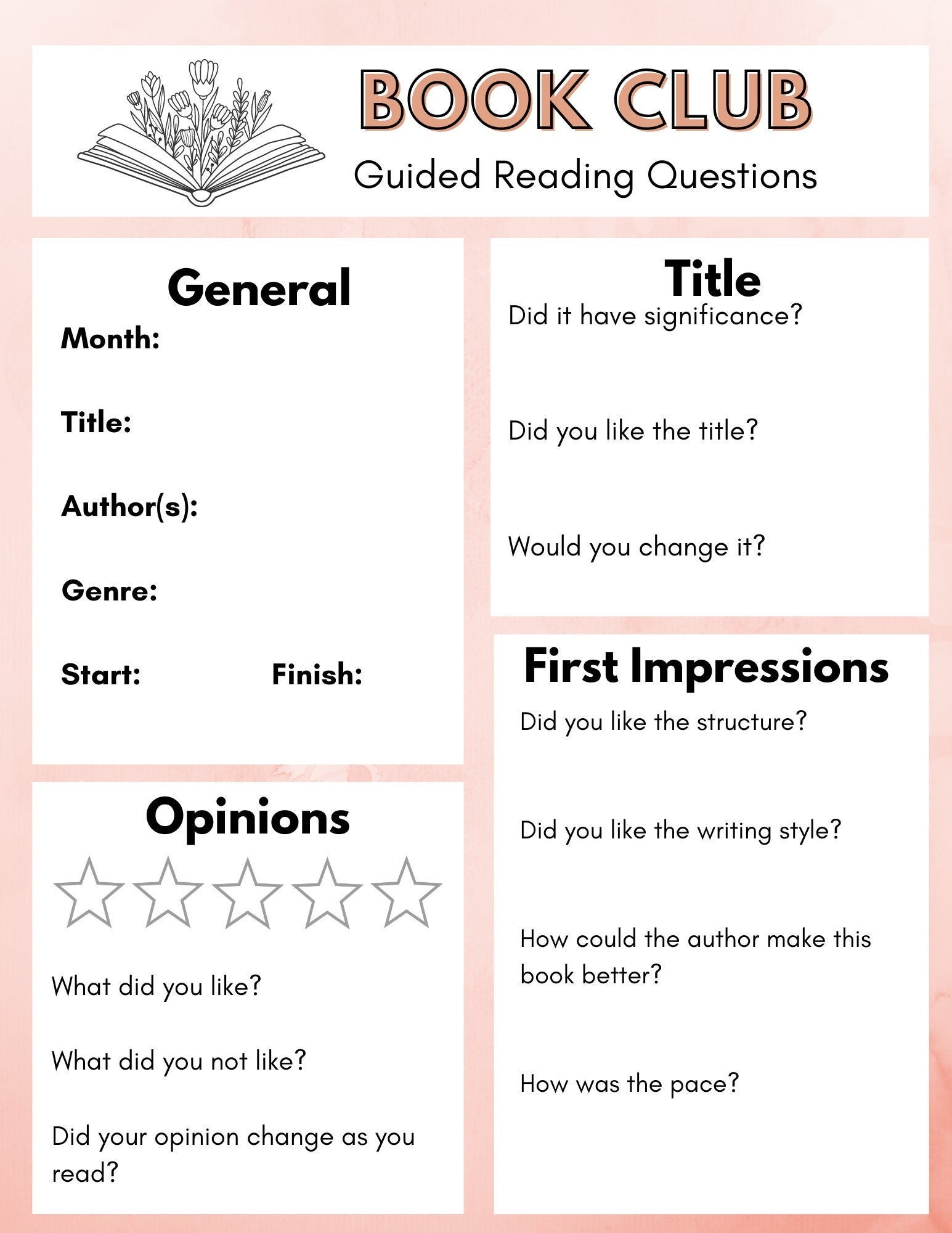
Ultimately, the goal is to make every book club meeting as rewarding as possible. By using a questionnaire, you’re providing a framework that supports rich dialogue, encourages personal reflection, and ensures that the club truly meets the needs and desires of its members. It’s a proactive step towards cultivating an even more cohesive and enjoyable literary community.
Elements of a Great Book Discussion Questionnaire
- Questions that explore the book’s central themes and ideas.
- Prompts for character analysis and development.
- Inquiries about the author’s writing style, intent, or message.
- Space for personal connections to the story or characters.
- Opportunities to provide general feedback on the book or club dynamics.
Crafting Your Perfect Book Club Questionnaire Template: What to Include
When you’re ready to put together your own questionnaire, consider it an extension of your club’s unique personality. There’s no one-size-fits-all solution, and the best book club questionnaire template is one that you’ve tailored to your group’s specific needs and quirks. You might want to include questions that prompt pre-reading thoughts, such as what members expect from the book based on its title or cover, or questions to consider while reading. This can heighten anticipation and encourage a more active reading process, where members are already looking for answers or insights as they go along.
Then, of course, come the post-reading questions. These are the heart of the discussion. Think about a mix of open-ended questions that invite detailed responses and perhaps a few more targeted ones that check for comprehension or specific reactions. Instead of simply “Did you like the book?”, try “What was the most surprising aspect of the plot?” or “Which character did you find most relatable, and why?” These types of questions encourage deeper reflection and varied viewpoints, ensuring that everyone can contribute meaningfully.
Don’t forget to incorporate questions about future preferences. This is your chance to solicit direct input from your members on what they’d like to read next. You could ask about preferred genres, whether they prefer fiction or non-fiction, or even the ideal length of a book. This inclusive approach makes members feel valued and ensures that the reading list reflects the diverse tastes of the group, preventing any one person from feeling their choices are being ignored.
Finally, dedicate a section to club logistics and overall feedback. This might include questions about meeting frequency, preferred locations, or suggestions for improving the club experience. It’s an invaluable way to keep the club running smoothly and to address any concerns before they become bigger issues. Regularly checking in on these operational aspects ensures that the club remains a positive and convenient activity for everyone involved, fostering a sense of ownership among all members.
Incorporating a book club questionnaire template into your routine can truly elevate the experience for everyone involved. It’s a wonderful way to ensure every voice feels heard, to dive deeper into the literary world, and to keep your discussions fresh and engaging. This proactive approach to planning not only strengthens the intellectual aspect of your meetings but also reinforces the bonds of friendship and shared passion that make book clubs so special.
By providing a thoughtful framework for discussion and feedback, you’re investing in the longevity and vibrancy of your group. It allows for continuous improvement and ensures that your book club remains a highly anticipated and rewarding part of everyone’s lives, creating lasting memories and expanding horizons one book at a time.

